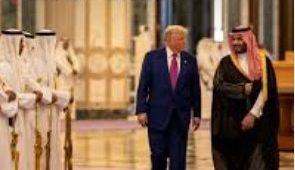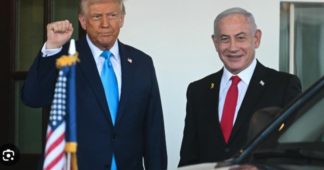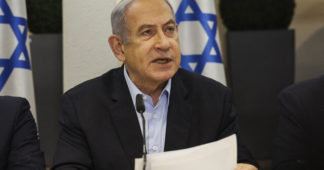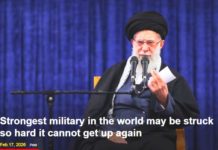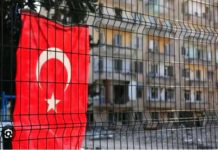by Dr. Muhammad Zulfikar Rakhmat
Oct 6, 2025
In late September, a billboard in Israel set off a storm of speculation in Jakarta. The giant display, featuring President Prabowo Subianto alongside Donald Trump, Benjamin Netanyahu, Mohammed bin Zayed, and other Middle Eastern leaders, proclaimed support for a regional peace plan. To Indonesian audiences, the image was jarring. Indonesia, home to the world’s largest Muslim population, has long stood firmly with the Palestinian cause and has never recognised Israel. Yet here was Prabowo—less than a year into his presidency—flanked by leaders openly aligned with Zionist interests.
Indonesian officials were quick to insist that the billboard was not a sign of shifting policy. The Foreign Ministry reiterated that Indonesia’s long-standing position remains unchanged: recognition of Israel will come only if Israel first recognises a sovereign Palestinian state.
Still, Prabowo’s own words at the United Nations the week before the billboard’s appearance left little doubt that he was willing to push the boundaries of Indonesia’s traditional stance. “We must realise a free Palestine,” he declared, “but we must also acknowledge, respect, and guarantee Israel’s safety and security.” That formulation—pairing Palestinian statehood with explicit guarantees for Israel—was greeted warmly by Netanyahu and sparked unease at home. Critics asked why an Indonesian president would emphasize Israel’s security while Gaza still burns and international courts accuse Israeli leaders of genocide.
The unease is not merely about rhetoric. It is about whether Prabowo’s caution toward Israel might be influenced by something deeper: his and his family’s well-documented relationships with powerful pro-Zionist business figures.
The name that surfaces repeatedly is Nathaniel “Nat” Rothschild, scion of the famed European banking dynasty and an investor with global reach. Prabowo’s younger brother, Hashim Djojohadikusumo—an influential businessman and political financier—has acknowledged extensive past dealings with Rothschild, including co-investments in Indonesia’s resource sector. Hashim has insisted that Prabowo himself had no business ties to Rothschild, but he has also been candid: he once described himself as “proud” to have done business with the financier.
Those denials were easier to accept before August 2024, when Prabowo, then president-elect, appeared publicly in Batam, an Indonesian free-trade island city just south of Singapore, alongside Rothschild at the opening of a new Volex manufacturing facility. Smiling broadly, Prabowo toured the plant with his brother and the British investor, while Rothschild praised the Indonesian leader on social media. The optics were striking: a soon-to-be president who has vowed to protect Indonesia from foreign exploitation was celebrating a major investment by one of the world’s most storied capitalist dynasties, one long entangled—fairly or not—with narratives about Zionist power.
READ: Israel denies Gaza ceasefire, calls it a temporary halt to bombing
To be clear, no evidence has emerged that Prabowo’s cautious approach to Israel is dictated by business connections. Hashim has repeatedly emphasised that his business ties with Rothschild ended in 2013, and that what remains is friendship, not partnership. The Rothschilds, for their part, are global investors, not Israeli officials. And yet in politics, optics matter as much as substance.
For many Indonesians, the sight of Prabowo appearing with Rothschild in Batam and then signalling a willingness to “acknowledge Israel’s security” at the UN raises uncomfortable questions. Is this a genuine strategic calculation—that Indonesia must eventually balance its solidarity with Palestine against the realities of global power? Or is it a subtle byproduct of elite friendships and financial entanglements that make Prabowo more hesitant to confront Israel forcefully?
The timing compounds suspicion. Prabowo’s statements at the UN came as Israel faced mounting accusations of war crimes in Gaza and as leaders from Colombia, Chile, and Slovenia called for Netanyahu’s prosecution. Instead of echoing those demands, Prabowo adopted a tone that could easily be read in Tel Aviv as an opening for normalisation. Analysts warn that Indonesia’s position now appears “ambiguous,” perhaps even tilted toward Israel’s interests.
It is possible, of course, that Prabowo is playing a careful long game—holding fast to Indonesia’s pro-Palestinian tradition while leaving room to manoeuvre diplomatically should conditions change. Indonesia is too large, and too strategically vital, to remain absent from future Middle East negotiations. Prabowo may calculate that measured ambiguity, rather than fiery denunciation, preserves Jakarta’s influence.
But ambiguity has costs. To Palestinians, Indonesia’s solidarity has been more than symbolic; it has been a rare reminder that the Muslim world’s largest democracy stands uncompromisingly against occupation. To dilute that message, particularly at a moment of extraordinary suffering in Gaza, risks eroding Indonesia’s moral standing.
Which brings us back to the central question: is Prabowo’s caution born of realpolitik, or is it shaded—however subtly—by his family’s proximity to figures whose business and political networks align with Zionist interests? The evidence remains circumstantial, and any definitive conclusion would be premature. But perception matters. As long as Prabowo continues to appear alongside Rothschild while softening his tone on Israel, many Indonesians will wonder whether their president’s words at the UN were shaped not only by diplomacy, but also by the quiet pull of friendship and capital.
For a leader who has built his appeal on nationalism and independence from foreign influence, those are suspicions he can ill afford to ignore.
We remind our readers that publication of articles on our site does not mean that we agree with what is written. Our policy is to publish anything which we consider of interest, so as to assist our readers in forming their opinions. Sometimes we even publish articles with which we totally disagree, since we believe it is important for our readers to be informed on as wide a speCtrum of views as possible.

